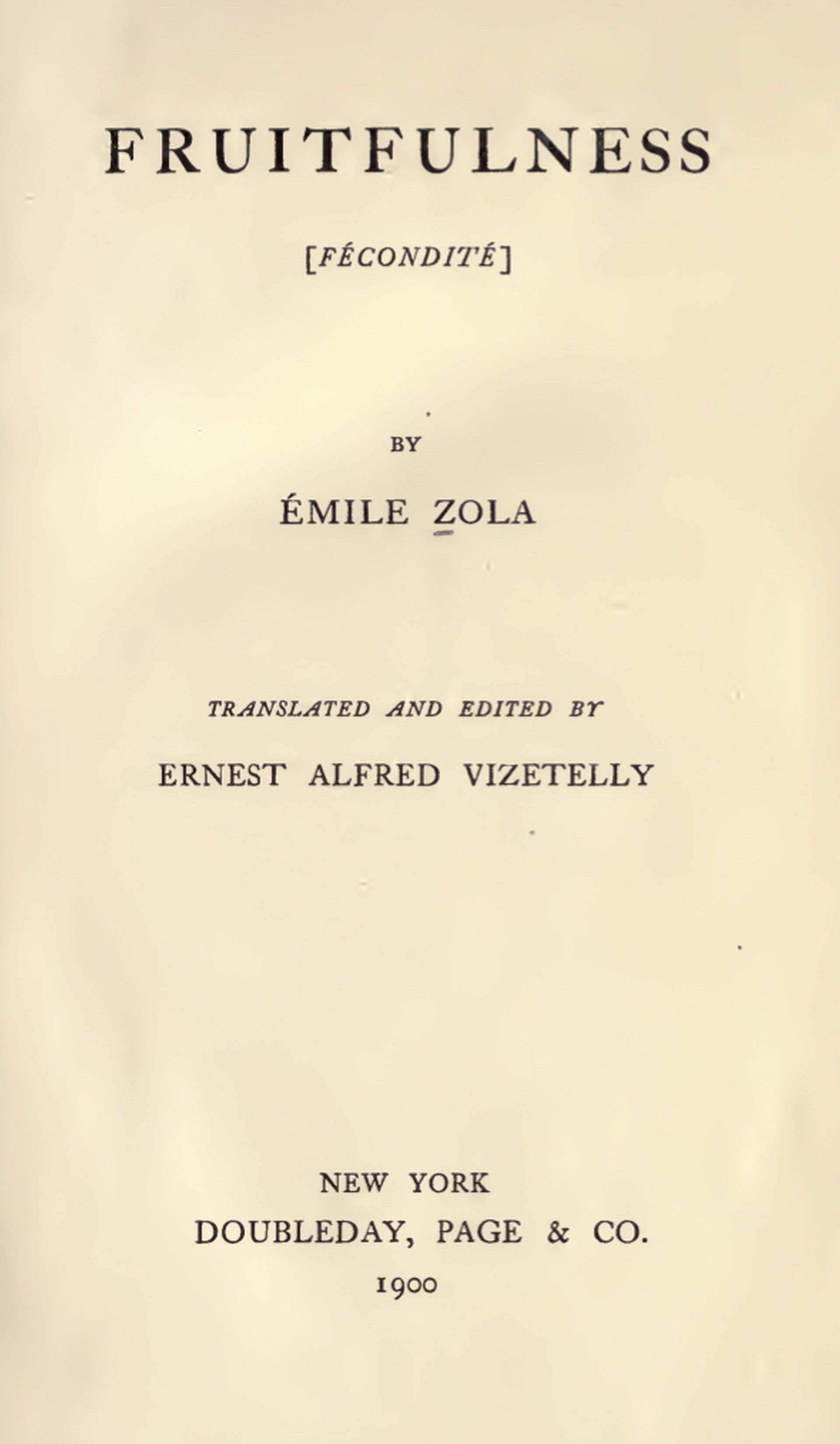

FRUITFULNESS
(FÉCONDITÉ)
BY
ÉMILE ZOLA
Translated and edited by
Ernest Alfred Vizetelly
NEW YORK
DOUBLEDAY, PAGE & CO.
1900
CONTENTS
TRANSLATOR'S PREFACE
FRUITFULNESS
CHAPTER I
CHAPTER II
CHAPTER III
CHAPTER IV
CHAPTER V
CHAPTER VI
CHAPTER VII
CHAPTER VIII
CHAPTER IX
CHAPTER X
CHAPTER XI
CHAPTER XII
CHAPTER XIII
CHAPTER XIV
CHAPTER XV
CHAPTER XVI
CHAPTER XVII
CHAPTER XVIII
CHAPTER XIX
CHAPTER XX
CHAPTER XXI
CHAPTER XXII
CHAPTER XXIII
TRANSLATOR'S PREFACE
"FRUITFULNESS" is the first of a series of four works in which M. Zolaproposes to embody what he considers to be the four cardinal principlesof human life. These works spring from the previous series of The ThreeCities: "Lourdes," "Rome," and "Paris," which dealt with the principlesof Faith, Hope, and Charity. The last scene in "Paris," when Marie,Pierre Froment's wife, takes her boy in her arms and consecrates him, soto say, to the city of labor and thought, furnishes the necessarytransition from one series to the other. "Fruitfulness," says M. Zola,"creates the home. Thence springs the city. From the idea of citizenshipcomes that of the fatherland; and love of country, in minds fed byscience, leads to the conception of a wider and vaster fatherland,comprising all the peoples of the earth. Of these three stages in theprogress of mankind, the fourth still remains to be attained. I havethought then of writing, as it were, a poem in four volumes, in fourchants, in which I shall endeavor to sum up the philosophy of all mywork. The first of these volumes is 'Fruitfulness'; the second will becalled 'Work'; the third, 'Truth'; the last, 'Justice.' In 'Fruitfulness'the hero's name is Matthew. In the next work it will be Luke; in 'Truth,'Mark; and in 'justice,' John. The children of my brain will, like thefour Evangelists preaching the gospel, diffuse the religion of futuresociety, which will be founded on Fruitfulness, Work, Truth, andJustice."
This, then, is M. Zola's reply to the cry repeatedly raised by his hero,Abbé Pierre Froment, in the pages of "Lourdes," "Paris," and "Rome": "Anew religion, a new religion!" Critics of those